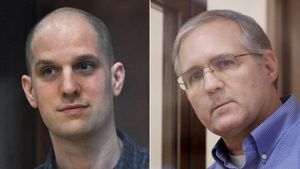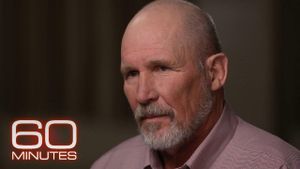Prime Minister Narendra Modi recently aimed sharp criticisms at opposition parties as Parliament's winter session commenced, highlighting issues of disruption and inefficiency within the legislative body. This session is particularly significant as it marks the beginning of the 75th year of the Indian Constitution.
During his address to the media, Modi emphasized the need for constructive dialogue among lawmakers, expressing disappointment over what he termed "hooliganism" displayed by some members of the opposition. He accused those who have been repeatedly rejected by the electorate of resorting to tactics aimed at undermining parliamentary proceedings for political gain.
Modi's exact words struck at the heart of the current political climate, stating, "Those who were rejected by people 80-90 times are trying to control Parliament by resorting to hooliganism for their own political gains." He warned opposition members to be aware: their actions are under the watchful eyes of the public, who will undoubtedly respond accordingly at the ballot box.
The Prime Minister's comments were not only retrospective but also forward-looking. He remarked on the special nature of this session, noting, "The last phase of 2024 is underway and the country is preparing for 2025. This Session of Parliament is special for several reasons, with the most significant being the celebration of the 75th year of our Constitution." His sentiments reflect the importance of this legislative period not just as routine, but as part of India’s rich democratic tradition.
Highlighting the stakes involved, Modi urged all members of Parliament to think critically about their roles as public representatives, stating, "There should be healthy discussions in the Parliament and more and more people should contribute to the discussions." He articulated the expectation for new members to bring fresh ideas and energy to legislative debates, contrasting this with what he perceived as the obstructive behavior of long-term opposition leaders.
His criticisms come at a time when the ruling Bharatiya Janata Party (BJP) has experienced notable electoral victories, including sweeping wins in the recent Maharashtra elections, securing 235 out of 288 seats against the opposition alliance, the Maha Vikas Aghadi, which could only manage 49 seats. Modi interpreted these outcomes as a reflection of public sentiment against the disruptions caused by certain members of the opposition.
"When people see such behavior in Parliament, they make their decisions clear during elections," Modi added, reinforcing the impact of legislative conduct on public perception. He articulated hope for productive discussions over various bills scheduled for consideration during the session, including significant changes concerning the Waqf Act and adjustments to the representation of Scheduled Tribes.
Reflecting on the global attention directed at India, Modi insisted on the need for heightened responsibility among parliamentarians, stating, "Today the world is looking toward India with great expectations. Our behavior should reflect our responsibility toward such regard." He concluded by reaffirming the importance of maintaining the sanctity of Parliament as the "temple of democracy."
Against this backdrop of political tension, Modi's remarks resonate beyond the walls of Parliament, touching on themes of accountability, representation, and the necessity for collaborative governance. He expressed hope for the winter session to proceed with civility, urging all members to adhere to the expectations and sentiments of the electorate they represent.
With the session slated to run until December 20 and various pressing issues on the agenda, including discussions on governance and economic policy, the road to legislative productivity remains uncertain. Opposition parties have already signaled their intent to challenge the government on several fronts, including inflation and allegations of mismanagement across various sectors.
The stakes are high as both sides prepare to navigate the complex interplay of discussion and dissent, with PM Modi's sharp critiques serving as a focal point for the days to come. Will this session turn out to be productive, or will it succumb to the same disruptions of the past? Time will tell.



